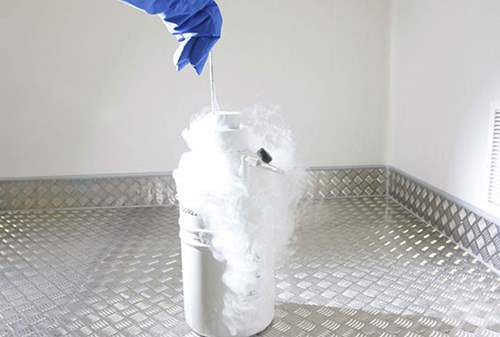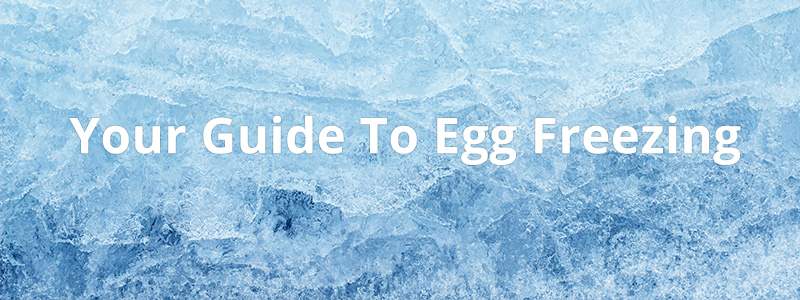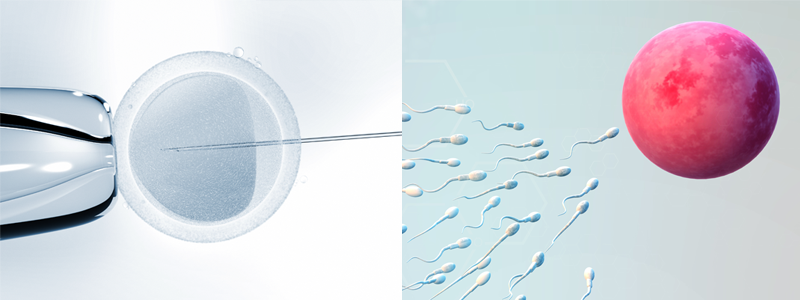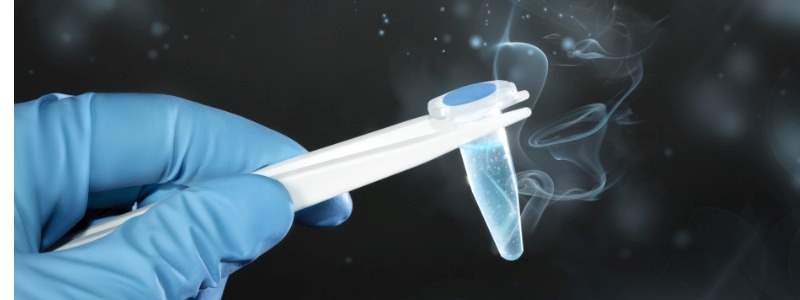Ever since its invention in 1986, a growing number of women have decided to freeze their eggs as a method of fertility preservation. In fact, the number of women having their eggs frozen tripled between 2009 and 2014 according to the HFEA. Not only is this because the technology is now more advanced and available, but women are choosing to undergo this procedure for a wide variety of reasons,
For instance, many women decide to freeze their eggs at 30 because they simply have not found a partner, or they wish to pursue their career and delay motherhood. Still more women choose to have their eggs frozen because of a medical diagnosis, such as cancer, or feel that they do not have the right environment to raise a child in.
What are the benefits of egg freezing?
As a woman gets older the quality and quantity of her eggs deteriorate, so it will become harder for her to conceive a child. At 30 years old, a woman’s chance of getting pregnant naturally is approximately 20%, whereas at 40 years this is around a 5% chance per cycle.
Therefore, by freezing your eggs at 30 years (for example) you are essentially preserving the quality of your eggs at that age. This will improve your chances of having a baby later in life with IVF.
This advancement is comparable to the importance of the contraceptive pill; it empowers women to make their own reproductive choices.
“The development of egg Vitrification is a ground-breaking development in its ability to empower women and provide them with the freedom to choose when they have their children, and for these reasons I believe it to be a key milestone on the road to gender equality.” Professor Geeta Nargund
How does egg freezing work?
The process for freezing eggs is similar to that of undergoing IVF treatment, except there is no embryo transfer at the end.
You can expect the procedure to go as follows:
- You have an initial consultation with a doctor who will assess your ovarian reserve and medical history
- You take hormonal stimulation medication for about 10 days (unless you are having egg freezing with in vitro maturation). This medication will mature the eggs within your ovaries.
- During this period you will need two to three ultrasound scans and blood tests at a fertility clinic to monitor the maturation of your eggs
- Once the egg sacs (follicles) reach the appropriate size, they are collected in a short theatre procedure. You will be under general anaesthetic or sedation.
- Eggs are frozen using *Vitrification fast-freezing technology
When a woman feels ready to try fertility treatment, then her eggs can be thawed and injected with her partner’s or a donor’s sperm via IVF.
* Egg vitrification is the method CREATE Fertility use for fast freezing when collecting your eggs for IVF. This process means that eggs are frozen incredibly rapidly, which prevents the formation of damaging ice crystals that cause damage to the eggs when later thawed.

What is the best age to freeze your eggs?
To give the best chance of freezing high quality eggs, it is recommended that you freeze your eggs before the age of 35. Whilst it is still possible to freeze eggs in the late 30s and early 40s, these are likely to be a of a quality that is good enough to result in a pregnancy,
“If eggs are frozen below the age of 35, the chances of success will be higher than the natural conception rate as the woman gets older” States a new HFEA report, “Despite this, the most common age that women freeze their own eggs for treatment is 38, with some women freezing their own eggs into their 40s, when the likelihood of a future pregnancy from using these eggs is very slim”
If you are in your late 30s or 40s and wish to get pregnant, please see our Natural IVF options.
How long can my eggs be frozen for?
As outlined by the HFEA, the standard storage period for egg freezing is usually around 10 years, but some eggs can be stored for up to 55 years for medical purposes.
There is currently a petition to extend the 10-year storage limit for egg freezing. You can see it here.
What are the embryo freezing success rates?
There are 3 main things to consider when looking at egg freezing success rates:
Firstly, the age at which the egg was frozen is important, as generally younger eggs are healthier.
Secondly, whether the frozen egg survives the egg thawing process. Fortunately, with the invention of Vitrification technology, eggs are now much more likely to survive the thawing process (over 90% survival rate when the woman is under 35)
Thirdly, after egg thawing, the success rate of fertilisation and implantation via IVF needs to be considered. As identified in research by the University of Valencia, IVF with a thawed egg is comparable to that of IVF with fresh eggs.
What are the risks?
As with all medical procedures, there are risks involved with egg freezing and any fertility treatments that may ensue. For instance, if a woman is given very high dose drugs then she may be at risk of Ovarian Hyperstimulation syndrome (OHSS). There is also a small risk of vaginal bleeding during the egg collection procedure (which stops after a short duration of pressure) or internal bleeding. The emotional stress this could place on you and your relationship is also important. At CREATE Fertility, our approach to fertility treatment uses lower drugs to achieve a mild response and this reduces the risk of OHSS, side effects and complications.
For more information on the risks of egg freezing, see the Healthista interview with our Medical Director Professor Geeta Nargund, or get in touch with a member of our friendly team here.
Is egg freezing available on the NHS?
Unfortunately, egg freezing is not available on the NHS. Whilst the NHS offers IVF to women up to the age of 42, many women are subject to a “postcode lottery” and a high chance of miscarriage at an older age. Therefore, as quoted by Professor Geeta Nargund in the Guardian “If women were to freeze their eggs in their 30s, the NHS would save money on the further treatments many IVF patients require”
Read the article “Let women freeze their eggs for free on the NHS” for more information on this topic.
How much does it cost to freeze your eggs?
Egg freezing costs start at around £2,850. There are also additional costs to consider, such as the annual storage fee, the thawing procedure, ICSI and your selected IVF procedure.
For an accurate cost of egg freezing, please get in contact with us here:
Key takeaways
If you are considering freezing your eggs it's important you know what to expect, and make an informed decision after an initial consultation with a doctor. You need to be fully aware of what the procedure involves, the cost of egg freezing and the success rates.







